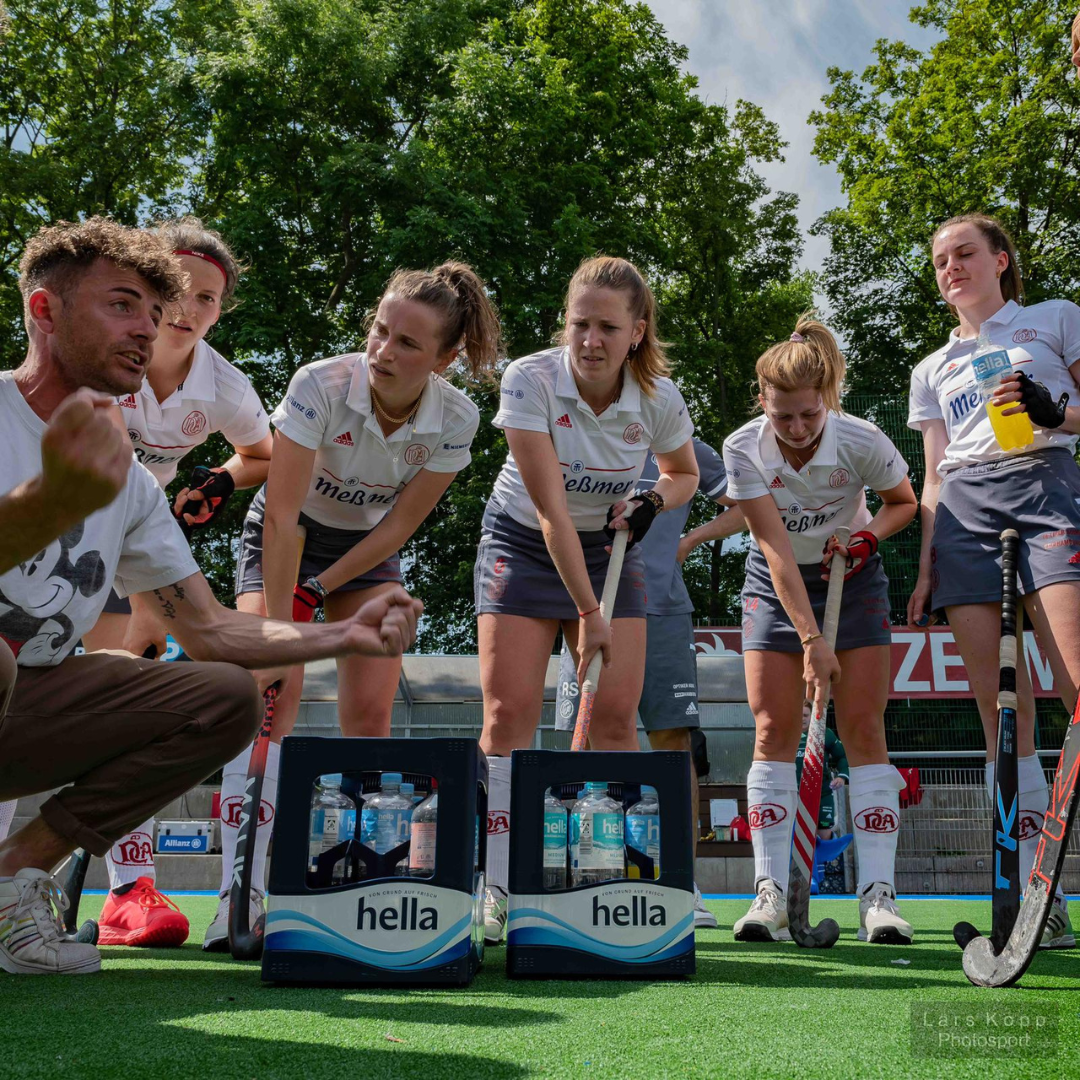Julian Tarres is a leading German Hockey coaching with Club an der Alster in Hamburg, in the Bundesliga team plus Assistant Coach to the National U18 Girls.
I got decks of MatchPlay Cards©️ because I was four years into coaching a team and needed innovate ways to try something new in our training to change the development of the group.
I needed a way to bring players into a more reflective state, I would say, without becoming their enemy. And for me, the team wasn't ready for me to take a more adult role of coaching. MatchPlay Cards©️ really added value to what we are trying to achieve.
I needed a way to develop how they (the players) were thinking about the game and about the team. When we got MatchPlay Cards©️ they were excellent, how can you say, mediator for a lot of unspoken issues that the team had at the moment. And I think Reflection MatchPlay Cards©️ were massive, for us in helping to speed up our normal team processes that would normally take a lot of time. Within 3 weeks we were seeing a huge difference in players.
"I got two more packs for two coaches that they were helping me a lot at the moment with my career. And I say, hey, you gave me the opportunity to work with the national team as an assistant coach. So here is a present for me.... These cards are amazing."
We would use them in a national camp, a national team camp directly after a match. In a way to try to bring the players together, to communicate more on what we're thinking about and stuff like that.
I think my problem or the thing that I realised was I was asking questions and the players were answering the right answers and not risking anything. And I was always getting that feeling that, OK, I'm asking questions because I'm looking for an Easter egg or the right answer, or I'm asking questions because I really want an answer. Are the players talking to each other? Yes. But how or what are they actually communicating and what are we getting from the things that we are saying?
I must say I used them for two weeks every Thursday evening and Saturday sessions that we had, afterwards it allowed me to first understand how players were thinking first about training, about each other, allowed me to see a lot about the relationships between players, who were the players who were talking, who were the players who were scared to talk.
I remember one card was who is the player who needs to defend better or needs to defend more or run back, stuff like that. And this card was randomly given to two players and one of them was very, very shy. And in that moment that she got the card, it was like, oh, God, I need to say a name now and I need to say the name from a player that's really good, but she's not really defending.
And that moment that she made the step and said, OK, I think you need to defend more. And it was a game changer using MatchPlay Cards©️ because the environment was very safe. So normally the other player would get angry and say, no, I'm the best player here, I don't need to defend. And it was like, all right. And I think that was a was a key point in time where we decide, OK, the cards are helping us.
"I remember a point after we were using MatchPlay Cards©️ for a very long time, we used them to determine the values of our team. And we used the cards saying, if a spy from an opposition team were here, what would he be saying about us?"
At Easter we played against the Netherlands, I brought the cards for the other two coaches. And we were talking about, OK, we need to improve the communication within the team. It wasn't my idea to use the cards because I was like it was a personal gift for the other coaches, one of them was just looking at them and say, oh, these are great questions and let's use them.
We sat in two circles and we gave the girls different Reflection MatchPlay Cards©️ and they started arguing and discussing which points were better or stuff like that.
After a while we came together in the big circle and they shared what they were thinking about
At one stage the girls picked 3 cards for the staff to reflect on in front of the group, I found it pretty amazing and also gave us the chance to speak about something that the girls were really interested in or the girls were really interested in about knowing. It was pretty great but often you think these enviorments are all about the coaches or everything is about the best players.
"I think that's the most important thing that the cards have to offer. And the possibility for us as coaches to take a step back and say, I'm not important here. I'm just a facilitator"
You need to realise that players want to keep playing in a national team and they always maybe try to answer the things that the coach wants to hear and that's a responsibility as a coach to ensure that that's not happening and that they are thinking and reflecting about what's happening, because that's the way you learn about the game.
"MatchPlay Cards©️ are a great tool for players and for coaches and I mean I think the right the right approach"
I see the game in two phases, ball possession and non ball possession. If you look at the cards, you have challenge cards that fit into both phases. How I pick the card is, which part of the game is this card helping me to develop? I really like the like five MatchPlay Cards©️ that are most focused on ball possession. And it's like amount of passes before you score a goal, Barcelona style or Tiki-Taka style and stuff like that.
The cards I pick always relate to my principles or one of the principles that is very important in Germany. You can link your principles and then using this link, you can develop yours and you can develop maybe a small side games that you're doing. And the players have always that feeling that, OK, we're working inside like, I won't say rules, but we're working inside a framework or a line of work using MatchPlay Cards©️.
I really like the Mad Dog card where the goalkeeper takes an amazing role and he can do everything or she can do everything and or every saves that the goalkeeper makes. I found it very important for performing phases where you give, the cards give you the possibility to maybe players that are always in, not always on spotlight to bring them a little bit forward and players that most of the time are on spotlight and very comfortable being there to take them outside their comfort zone and give them a challenge before a performing phase.
"I have two systems randomly. Like I have the cards in my hand and they like pick one or pick two or whatever. And I have a different system where I have a big white ball that's lying on the ground or on the pitch. And I leave the cards there, very organised"
Sometimes I call a timeout and I say, OK, now that team picks a car and that team picks a different card. I see how they have to concentrate because they need to read in English and they are German speaking. I also see how they first come together to look at the cards. And you always have someone that maybe doesn't understand a lot of English and someone who speaks fluently. And they come together to try to understand what's on the card.
When they have the chance to choose a MatchPlay Card©️ you can see how excited they are, I see that they reflect a lot before which card I'm going to take, because sometimes the cards are turned down and sometimes you can see it. It gives them an element of surprise to their challenge.
They also hold players accountable for what they are saying because if they are reflecting a lot try to have a record and bring it up hey last time that we used the cards we spoke about that and that what's the status now or stuff like.




Share:
Top 3 ways to engage players in 2024
3 session must haves for young players